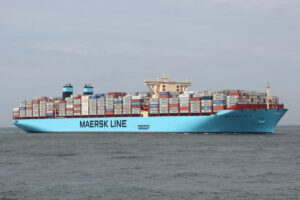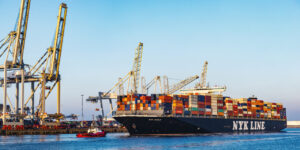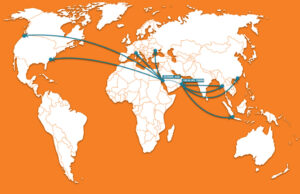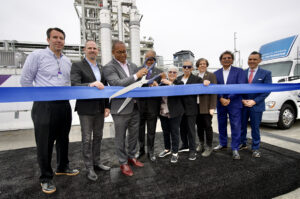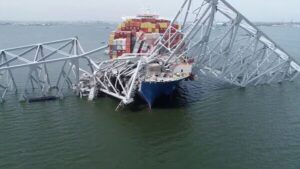The 13-day strike between Canada’s International Longshore and Warehouse Union (ILWU) dockworkers and their employers, the British Columbia Maritime Employers Association (BCMEA), has ended after reaching a four-year tentative wage deal.
The resolution of these operational disruptions concludes the trade impediments that had negatively affected the flow of millions of dollars’ worth of trade at Canada’s busiest ports, such as the Port of Vancouver and Prince Rupert.
The BCMEA said that: “The British Columbia Maritime Employers Association (BCMEA) and International Longshore and Warehouse Union (ILWU) Canada are pleased to advise that the parties have reached a tentative agreement on a new 4-year deal.”
Meanwhile, the ILWU Canada have also professed that an agreement is now in place, which is contingent upon ratification by both sides moving forward.
The strike is over.
— Seamus O'Regan Jr (@SeamusORegan) July 13, 2023
The BCMEA and the ILWU have accepted the Terms of Settlement from federal mediators. The parties have reached a tentative agreement.
Statement from Minister Alghabra & me: pic.twitter.com/bCzlQiGsZR
The agreement includes demands from the dockworkers’ union detailing wage increases and an expansion of their jurisdiction to regular maintenance work on terminals, reported Reuters.
READ: Canada West Coast port labourers call to strike in unanimous vote
Despite the initial bargaining apprehension held among both sides, particularly the BCMEA who felt that any further negotiations would have been futile, Labor Minister Seamus O’Regan saw the issues between the ILWU and BCMEA as bridgeable.
“After 11 days of a work stoppage, I have decided that the difference between the employer’s and the union’s positions is not sufficient to justify a continued work stoppage,” said O’Regan in a tweet on 12 July.
Subsequent to his optimism, O’Regan dispatched federal mediators on 11 July to expedite the process of reaching a final agreement between the conflicting parties, Bloomberg reported.
Drafted by the federal mediator, O’Regan offered terms to both parties, giving them 24 hours to decide if they were satisfied, reported Reuters. At 10.20 am, 10 minutes before the deadline, the deal was reached.
READ: ILWU Canada initiates strikes
The 7,500 dockworkers that went on strike on 1 July on ports along Canada’s Pacific Coast saw significant economic losses for the country.
Bloomberg reported that the Canadian Manufacturers & Exporters trade association has estimated that the port disruptions have cost up to C$500 million ($379 million) of trade per day. Reuters further reported that strikes have disrupted a total of C$6.5 billion of cargo movement at the ports.
Moreover, small businesses have been heavily impacted by the ongoing strikes that have shutdown Canada’s West Coast ports that are accumulatively responsible for 25 per cent of the country’s international trade.
A survey by the Canadian Federation of Independent Business published on 11 July found that about half of business owners said the strike would affect their operations.
Economists have warned that the port disruptions over the past fortnight could see a cascading affect through the supply-chain in North America and could trigger fuel inflation, Reuters reported.
READ: US ILWU rejects diverted vessels amid Canada strikes
In a joint statement, O’Regan and Transport Minister Omar Alghabra said: “The scale of the disruption has been significant.
“We do not want to be back here again. Deals like this, made between parties at the collective bargaining table, are the best way to prevent that.”


